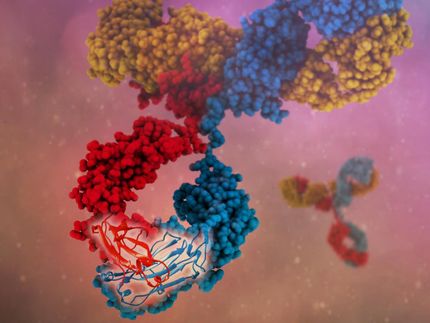Progress toward an Alzheimer’s drug that saves brain cells
Advertisement
VIB scientists connected to the K.U.Leuven have identified a molecule that can form the basis for a new therapy for Alzheimer’s disease. This is the first step toward a medicine that could actually stop the progress of Alzheimer’s. Existing medicines can at best limit the loss of memory during the first phases of the disease. The authoritative journal Science is publishing the results of this research. A first step, however, is still a long way from an approved drug -; even if everything goes well, it will be another 15 years before the medicine becomes available.
At present, Alzheimer’s disease is still incurable. Today’s medicines for Alzheimer’s patients sustain the memory functions for a short time, but they do not stop the brain’s cells from dying off. Plaques and the y-secretase complex A typical characteristic of the brains of Alzheimer’s patients is the presence of amyloid plaques, which are abnormal accumulations of the b-amyloid protein between the neurons. The sticky y-amyloid arises when the amyloid precursor protein is cut into pieces incorrectly. The y-secretase complex - which cuts proteins at a specific place- plays a major role in the creation of these plaques. However, this complex (group of proteins that work together) is also involved in the regulation of a series of other essential proteins such as Notch, which plays a crucial role in the development of an embryo. This is why many of the medicines in development that act on the whole y-secretase complex run up against toxic side effects.
Under the direction of Bart De Strooper, and in collaboration with researchers in other countries, Lutgarde Serneels, Jérôme Van Biervliet and their colleagues have been studying the y-secretase complex in a variety of tissues. They have now been able to demonstrate that the complex assumes a different shape and function according to the tissue in which the secretase is active. For their research on Alzheimer’s disease, the researchers have used mouse models. They have found that deactivating the variant, Aph1B y-secretase, in Alzheimer mice leads to reduced formation of the plaques, without any harmful side effects. Importance of the research With this discovery, the researchers are once again opening a way toward the development of medicines that deactivate y-secretase. By concentrating on a variant of the complex that cuts proteins specifically in the brain - the Aph1B y-secretase complex - the formation of the plaques can be prevented, while the other functions of y-secretase are not affected. This raises hopes for a drug that, for the first time, will succeed in stopping Alzheimer’s disease.
Furthermore, because the toxic side effects have been cut away, it could also be administered preventively to persons with a risk of Alzheimer’s. However, such a medicine will still require at least a good 15 years of further research and development. Given the fact that y-secretase is also involved in the onset of certain cancers, research on the various variants of y-secretase can lead to new insights into these diseases as well.
Original publication: Serneels et al., "y-secretase Heterogeneity in the Aph1 Subunit: Relevance for Alzheimer’s Disease"; Science 2009.























































